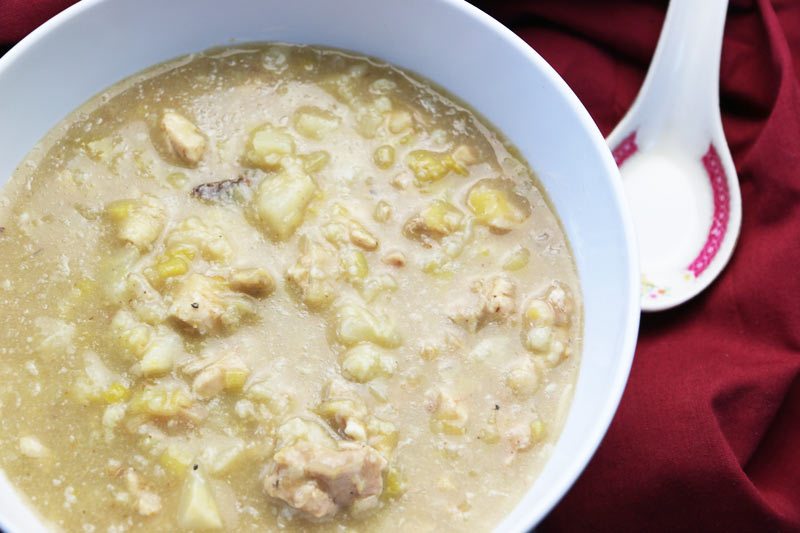Table of Contents[Hide][Show]
Leeks resemble a spring onion/ scallion, just much broader in their stems. And that’s because they are part of the the onion family, making them a direct relation to shallots, garlic, chives, and scallions.
They provide a unique, mild, yet super tasty flavor and texture that’s definitely worth trying, if you haven’t already.
Leeks Nutrition Facts
- Leeks are very low in calories, providing only 32 calories per cup cooked
- Leeks are a low glycemic index food with a value of about 15
- Leeks are an excellent source of vitamin K
- Leeks provide key minerals such as manganese, copper, and folate
- Leeks are relatively low in carbs (less than 8 g per cup cooked) and high in fiber
- Leeks are a good source of prebiotics
Health Benefits of Leeks
- Vitamin K allows blood to clot and strengthens the bones and heart
- Manganese is essential for metabolism and bone formation
- Copper is required for growth, cell formation, brain development, and glucose transport
- Folate is a key coenzyme needed for protein and DNA synthesis
- Fiber helps prevent constipation and may help lower cholesterol
- Prebiotics feed healthy bacteria in the gut, helping them produce vitamins and digestive enzymes and regulating immune function
Research on Leeks Specific to T2 Diabetes
While there is not a lot of research on leeks specifically, since they are tied in closely with the onion and garlic family, therefore, we can surmise similar health benefits.
Leeks have been shown to inhibit a-amylase activity, which help supports a range of anti-diabetic functions.
Leeks provide flavonoids and antioxidants, which strengthen cardiac function and combat free radical damage – a common occurrence in type 2 diabetes.
Leeks may lower cholesterol levels and may reduce risk of cancer as well.
Leeks contain allicin, which has been shown to be protective against diabetic neuropathy and metabolic syndrome. It also seems to have a cardioprotective function in those with diabetes and may help reduce depression.
Points for Consideration
Leeks contain fructans and oligosaccharides. These are prebiotic carbohydrates that colonize and ferment in the colon. While this is beneficial for most people, some people have difficulty digesting these and IBS sufferers will want to avoid leek if following a FODMAPs diet.
Leeks and Diabetes Conclusion
Leeks are a great non-starchy low carb vegetable that we encourage you to include in your diet.
Leeks in the Kitchen
Selection
Look for leeks that are dark green and firm, not limp, not wilted or dried out. The bulbs should be intact, unblemished and have a few small roots attached. Smaller leeks (<1.5 inches diameter) will be more tender than larger leeks.
Storage
Leeks should be stored in a refrigerator crisper wrapped loosely in plastic and will keep for up to two weeks. Do not wash or cut until ready to use.
Uses
Leeks can be sliced finely and tossed raw into salads, added to stir fries, boiled and used as a wrap for filling (similar to cabbage rolls), or they make a great base for soups and stews.
Cooking
Poach or Saute leeks in a bit or olive oil or broth 5-10 minutes or until just tender.
Boil leeks 20-30 minutes or until tender.
Fry leeks in 1 Tablespoon of butter or coconut oil until crispy and browned about 5-10 minutes.
Cutting Techniques
Slice off the very tips of the roots, then make continual motions, slicing the vegetable partway up the stem. As you get further up toward the darker color, you may wish to discard the ends, which are often tougher and more bitter. However, they are still edible and can be tossed into soup stocks or stir fries.
After cutting, wash very well between layers as there are a lot of pockets and crevices for dirt and grit to become lodged. And a gritty meal doesn’t make for a nice one!
Here are a couple of videos with chefs showing off a few different chopping techniques
Leek Recipes
Chicken Cauliflower Leek Soup: Slow Cooker Recipe
Chicken Cauliflower Leek Soup Recipe
Check out these two delicious numbers from Martha Stewart:
ENJOY!


Gwendolyn Mitchell
I’m just discovering leek and I’m a type 2 diabetic it’s says it’s good for me.ill try anything that will help me I’m putting it in some cabbage,meal done soon Gwen
Emily - Dietitian (MS, RD)
Leeks, as well as most other (non-starchy) vegetables are a great choice for someone with type 2 diabetes. There aren’t any quick fixes, but lowering your carb intake and increasing exercise can be two great tools to taking control of this condition. Keep exploring our blog and reach out if you have any other questions!